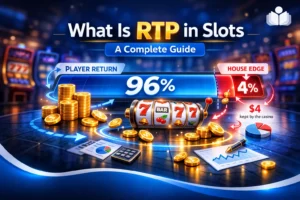You don’t have to be a U.S. resident or citizen to purchase a home in the country. Even individuals without documentation to live or work in the U.S. can buy property and become homeowners.
In fact, according to the Migration Policy Institute, over 3 million of these individuals living in the U.S. already own homes. The Institute on Taxation and Economic Policy notes that they contribute $3.6 billion annually in property taxes.
Can a Non-U.S. Citizen Get a Mortgage Loan?
Yes, non-U.S. citizens can purchase property in the U.S., whether they have legal documentation. This includes foreign nationals, visa holders, green card holders, and even those who have entered the country unlawfully.
Legal Residency Status
Nora Aguirre, a realtor in Nevada and a member of the board of directors of the National Association of Hispanic Real Estate Professionals, says that many undocumented homebuyers she works with are families and first-time buyers aiming to establish permanent residency. However, achieving this can take a significant amount of time.
“Unfortunately, this process isn’t quick. It can take 10 to 15 years,” Aguirre explains. “So, becoming a homeowner is a major milestone for them.”
Eligibility Requirements for Non-U.S. Citizens
Securing a loan as an immigrant can take time and effort, depending on your residency status and the documentation you possess. Permanent and non-permanent residents legally authorized to live and work in the U.S. can typically use a conforming mortgage to buy a home.
However, immigrants without such documentation often need to seek non-conforming alternatives or pay for the property in cash.
To qualify for a conforming mortgage, often referred to as a “traditional mortgage,” you’ll need:
- A Social Security number or an Individual Taxpayer Identification Number (ITIN)
- Proof that you’re authorized to live and work in the U.S., such as a work visa or green card
Both permanent and non-permanent residents can qualify for a conforming mortgage. However, non-residents or those with expired residency documentation usually have to use a type of non-QM loan known as an ITIN mortgage.
Credit History
Like any mortgage, lenders review your credit history to ensure you can responsibly manage the loan. While credit score requirements vary by lender and loan program, you’ll need a high 500s to low 600s score to qualify.
Income Verification
Lenders will also examine your income to verify that you have consistent, stable earnings to cover your monthly payments. They might request bank statements to confirm deposits and could contact your employer to verify your job status.
Down Payment Requirements
A down payment is typically required to qualify for a mortgage, similar to a deposit. The more you put down, the better the loan terms you’ll likely receive. However, certain loan programs, like USDA and VA loans, don’t require a down payment at all.
Types of Mortgage Loans for Non-U.S. Citizens
If you’re a non-U.S. citizen, you have several mortgage options available:
Conventional Loans
To qualify for a conventional loan, a conforming loan, you’ll need a Social Security Number or Individual Taxpayer Identification Number (ITIN) and authorization to work in the U.S., such as a work visa or green card. Conventional loans typically require a minimum down payment of 3% and a credit score of at least 620.
FHA Loans
FHA loans are an option for non-permanent residents authorized to work in the U.S. These loans require a minimum down payment of 3.5% and a credit score of 580 (or 500 if you can make a 10% down payment).
VA Loans
VA loans are available to U.S. military members, veterans, and spouses. These loans require no down payment and have no official credit score minimum, though most lenders look for at least a 640. VA loans often offer more affordable rates than other loan programs.
ITIN Loans
ITIN mortgages allow borrowers to use their ITINs to apply for a mortgage. ITINs are issued by the IRS for those who aren’t eligible for a Social Security Number but need to file taxes.
ITIN loans provide a path to homeownership for non-U.S. citizens without the documentation needed for a conforming mortgage. However, they can be more costly.
Many ITIN lenders require at least a 20% down payment, and ITIN mortgage rates are often significantly higher than those for conforming mortgages.
As Aguirre notes, “Borrowers with ITIN loans usually need a larger down payment and more savings, and they often face higher interest rates.” Due to the higher rates associated with ITIN mortgages, ITIN mortgage holders can pay up to $500 more per month on their mortgage than someone with a comparable conforming loan.
Steps for Immigrants to Apply for a Mortgage Loan
Buying a house as a non-U.S. citizen can be complicated. Here are the steps to follow when applying for a mortgage:
Find a Lender
If you’re purchasing a home in the U.S. as a non-resident, it’s important to work with professionals who have experience with non-citizen and ITIN borrowers. This includes finding a knowledgeable lender and loan officer and possibly a real estate agent as well.
Preparing Documentation
Having the correct documentation for your status, income, employment, and more is crucial when buying a home as a non-U.S. citizen. Your lender needs assurance that you’re a responsible borrower with the resources to make timely payments. Discuss with your loan officer what documents you’ll need and how to submit them securely.
Understanding Loan Terms
It’s vital to understand the terms of your loan, including the interest rate, payment, closing costs, fees, and other mortgage details that will affect your home purchase and finances. Don’t hesitate to ask questions if anything is unclear, and consider consulting a real estate attorney if you suspect any discrimination in the borrowing process.
Challenges Non-U.S. Citizens May Face
While non-U.S. citizens can obtain a mortgage, the process can take time and effort. Here are some obstacles you might encounter:
Higher Interest Rates
Lenders often view non-U.S. citizens as higher-risk borrowers than permanent residents, fearing they may be more likely to abandon their homes and cease payments. As a result, interest rates may be higher for non-U.S. citizen borrowers.
Larger Down Payments
To mitigate the perceived risk, lenders might require larger down payments. This approach reduces the amount they need to lend and makes borrowers less likely to miss payments, as they have a greater financial investment in the property.
Limited Loan Options
Non-U.S. citizens have mortgage options but may only qualify for some loan programs. When purchasing a home as an immigrant, exploring and comparing the available options is important.
Tips for Non-U.S. Citizens to Improve Mortgage Approval Chances
Buying a home as an immigrant can be tough, but there are ways to improve your chances. Here’s how non-U.S. citizens can boost their mortgage approval odds:
Build a Strong Credit History
A solid credit history demonstrates to lenders that you’re responsible with debt and less likely to default on your mortgage. This makes it easier to qualify for a loan and could secure you lower interest rates and better terms.
Save for a Larger Down Payment
The more you can put down upfront, the less risk you pose to the lender. A larger down payment can make it easier to qualify for a loan and help you get more favorable terms.
Seek Professional Advice
Consult with experienced loan officers, mortgage brokers, real estate agents, and real estate attorneys. They can guide you toward the best choices for your unique situation as a homebuyer.
Can a Non-US Citizen Get a Mortgage Loan – FAQs
The Bottom Line
Many banks and mortgage companies extend conventional and FHA home loans to non-U.S. citizens as long as they can verify their residency status, work history, and financial background.
These institutions understand the unique challenges non-citizens may face and are often more accommodating with the documentation required. Lenders with extensive experience working with non-U.S. citizen borrowers are more flexible, recognizing that traditional documentation may only sometimes be readily available or applicable.
They’re more willing to work with applicants to find alternative verification forms, ensuring the process is as smooth as possible. This tailored approach can make it significantly easier for non-citizens to navigate home-buying and secure a mortgage that meets their needs.
 Sections of this topic
Sections of this topic















